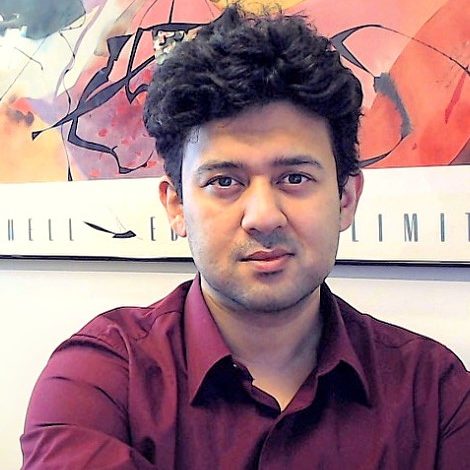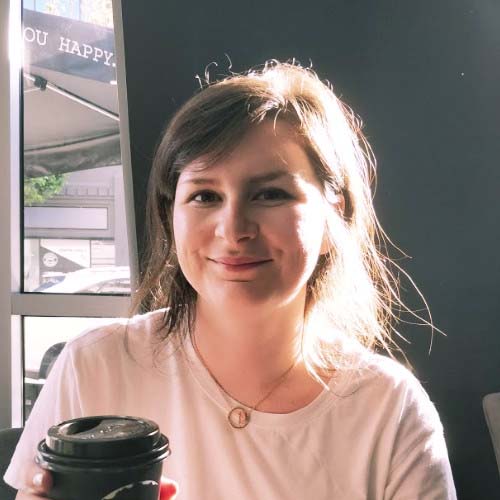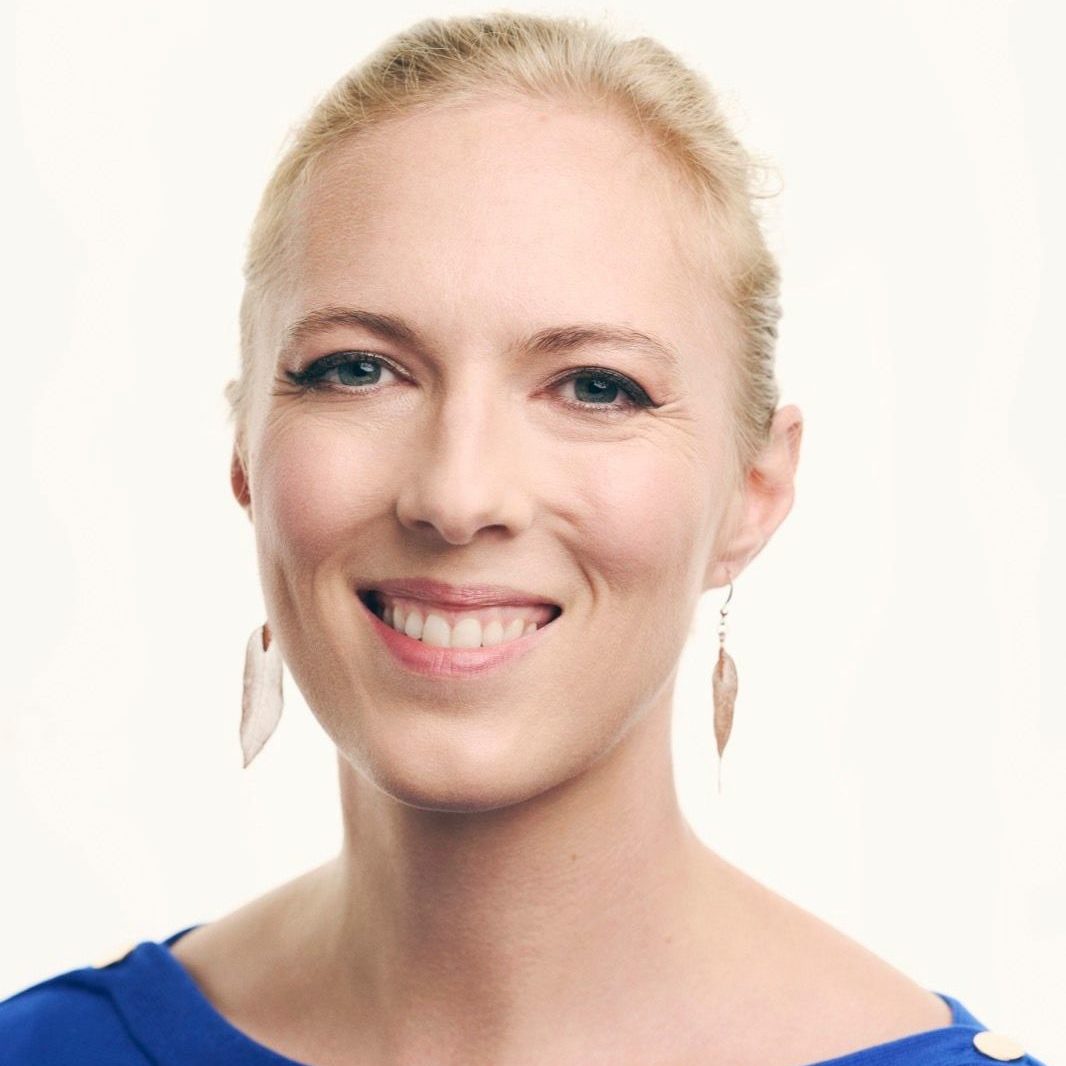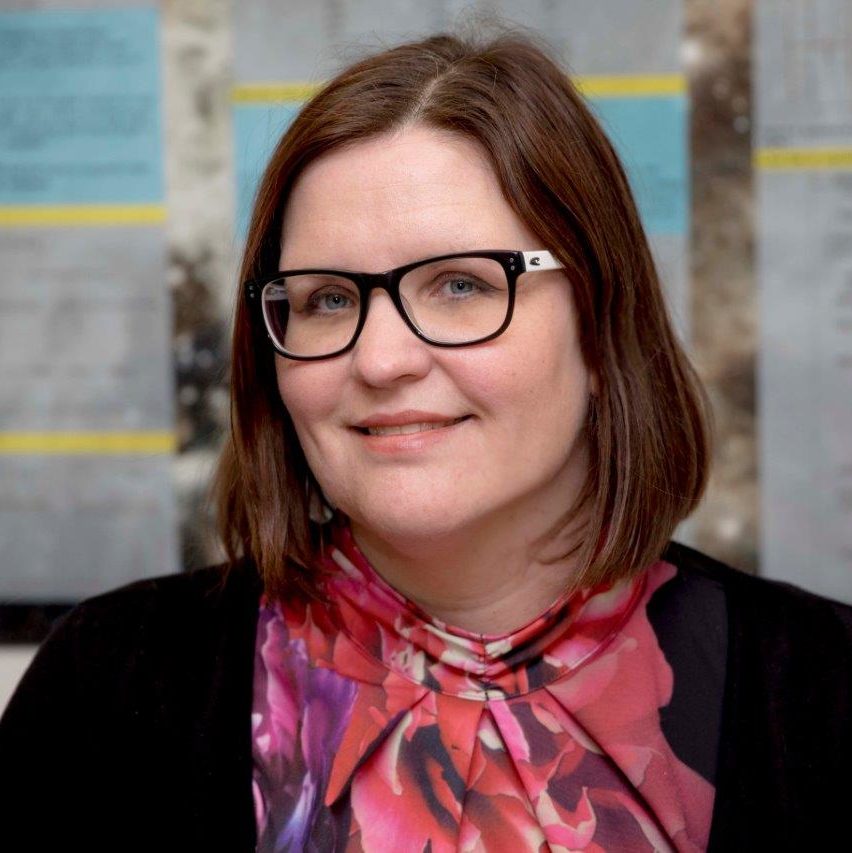New faculty members Kohitij Kar, Allysa Lumley, Daniela Monaldi, Gloria Orchard, Balint Radics, Kelly Ramsay, Sarah Rugheimer and Jennifer van Wijngaarden are joining the Faculty of Science.
“It is my pleasure to welcome our new faculty members to the Faculty of Science,” said Dean of Science Rui Wang. “Our Faculty is committed to fostering scientific discovery and tackling global challenges to create positive change in our world. By recruiting talented new researchers and teachers like these individuals, we are building science for the future and making York Science a great place to learn and be a researcher.”

Kohitij Kar
Kohitij Kar is an assistant professor at the Department of Biology in the Faculty of Science at York University. Kar is also a Canada Research Chair in Visual Neuroscience. Prior to this, Kar was a research scientist at the McGovern Institute for Brain Research at MIT working in the lab of James DiCarlo. He completed his PhD in the Department of Behavioral and Neural Sciences at Rutgers University in New Jersey in 2015 before joining the DiCarlo Lab. Kar’s research lies at the intersection of neurophysiological investigations of visual intelligence in the non-human primates and artificial intelligent systems. His work has been published in top-tier neuroscience journals like Science, Nature Neuroscience, Neuron and in highly competitive machine learning conference like NeurIPS. Kar has also recently become a SFARI investigator after receiving a Simons Foundation grant to develop a non-human primate model of autism.

Allysa Lumley
Allysa Lumley joins the Faculty of Science as assistant professor (teaching stream) in the Department of Mathematics & Statistics. Lumley received her PhD from York University in 2019 in analytic number theory. She went on to do a post doc at the Centre des Recherches Mathematiques in Montreal. She is currently co-organizing a summer school in explicit number theory for mature undergraduates and beginning graduate students. After re-joining York as a teaching faculty, she has begun helping the student chapter for the Association for Women in Mathematics to offer a number of workshops for both graduate students and undergrads alike.

Daniela Monaldi
Daniela Monaldi holds a university degree in physics (Laurea in Fisica) from the University La Sapienza in Rome, Italy and worked as a junior researcher in a high-energy physics experiment at the HERA accelerator in Hamburg, Germany. Her PhD is in the history of science, with a focus on 20th-century physics, from the Institute for the History and Philosophy of Science and Technology at University of Toronto, Canada. She was a postdoctoral Fellow at the Max Planck Institute for the History of Science in Berlin, Germany. Monaldi taught history of science, science and technology studies, and natural science courses at York University for many years as a contract instructor, and was appointed as assistant professor in the Science & Technology Studies Department in 2022. Her most recent published works are on the evolving conceptual understanding of quantum statistics, and on the role of food traditions in the transition to sustainable food systems. Her current research is on Laura Chalk, the first woman to obtain a PhD in physics at McGill University and the first researcher to provide experimental evidence for Edwin Schrödinger’s wave mechanics.

Gloria Orchard
Gloria Orchard joins the Department of Physics and Astronomy as an assistant professor. Her post-secondary education includes a BSc in applied physics at York University followed by an MSc at the University of Toronto in medical physics. During her PhD, also in medical physics, from McMaster University, she was awarded a Canada Graduate Scholarship from the Natural Sciences and Engineering Research Council of Canada (NSERC). Before returning to York University, she completed an NSERC postdoctoral fellowship and was a sessional instructor in the field of radiation science at Ontario Tech University (then the University of Ontario Institute of Technology).
During her PhD and postdoctoral fellowships, Orchard’s main research interests were in microdosimetry and radiation detector development. Microdosimetry, an experimental technique, uses a Tissue Equivalent Proportional Counter (TEPC) to measure the energy deposition of ionizing radiation in microscopic tissue volumes. The design of this type of detector simulates microscopic tissue sites, such as single cells, and data collected is used to quantify DNA damage due to ionizing radiation. Her main research included designing and developing a thick gas electron multiplier TEPC for microdosimetry and an electron attachment spectrometer using a thick gas electron multiplier.
Following her postdoctoral studies, she joined the Department of Physics and Astronomy at York University as a laboratory technologist. In this role she was responsible for developing the undergraduate physics laboratories. As she continues her academic career, Orchard will continue to explore her interests in experimental physics, teaching physics and working in the laboratory.

Balint Radics
Balint Radics is an assistant professor (Contractually Limited Appointment, Research Stream) in the Department of Physics and Astronomy. In his research, he focuses on the experimental determination of the properties of the neutrino particle. He participates in the currently running Tokai-to-Kamioka (T2K, Japan) and the upcoming Deep Underground Neutrino Experiment (DUNE, USA) long-baseline neutrino-beam experiments. T2K recently revealed the first signs of possible Chare-Parity-symmetry (CP-symmetry) violations in the lepton sector of the elementary particles. The upcoming DUNE experiment will measure the value of the CP-symmetry violation with unprecedented precision, along with several other properties of the neutrino particle. To achieve such a level of precision, however, the neutrino beam, neutrino-nucleus interaction modes, all the detectors, and other experimental results will need to be modeled and their uncertainties accounted for. This involves orchestrating hundreds of experimental components correctly and contrasting simulations with data. In his research, he is working on developing the statistical modeling of T2K and DUNE, ensuring scientists extract the best possible information from the experiment.

Kelly Ramsay
Kelly Ramsay was appointed as an assistant professor in July 2022. Ramsey recently completed her PhD in statistics at the University of Waterloo under the supervision of Professor Shoja Chenouri. During her time at Waterloo, her research was recognized with the Sprott Award. Her research is focused mainly on robust and nonparametric statistics. One of her main areas of interest are functional data. She is interested in how outliers affect inference for functional data and how we can quantify variability in functional data samples. Another main area of interest is differential privacy. She is currently interested in how robust statistics connects to differential privacy as well as the theoretical tradeoff between privacy and statistical accuracy. Some of her areas of application are medical imaging, finance, and speech recognition. In the past, she has also worked on data collection and web-scraping. Ramsey is excited to begin exploring these topics with students at York University.

Sarah Rugheimer
Associate Professor Sarah Rugheimer is the new Allan I. Carswell Chair for the Public Understanding of Astronomy in the Faculty of Science at York University. Rugheimer is an astrophysicist interested in understanding how to detect life on exoplanets by looking for atmospheric biosignatures (i.e., atmospheric evidence for past or present life). Previous to her post as the new Chair, she was a Glasstone Research Fellow and a Hugh Price Fellow at the University of Oxford. She received her PhD in astrophysics from Harvard University and completed a Simons Origins of Life Research Fellowship at the University of St. Andrews, U.K.
Rugheimer’s research interests are in modelling the atmosphere and climate of extrasolar planets with a particular focus on atmospheric biosignatures in Earth-like planets, as well as modelling early Earth conditions. Her interests include many topics in the field of astrobiology, such as the origin of life on Earth and the pursuit of detecting life on other planets and moons in the universe. She says she is excited to start a new exoplanet research group at York to pursue these interests and to share the joy of astronomy to new communities within Canada.
She has also been actively involved with public outreach. She is the author of Searching for Extraterrestrial Life, an astrobiology course for the public on Amazon Audible Originals. Her TED talk The Search for Microscopic Aliens has more than 1.6 million views on TED.com. She received the Barrie Jones Award and the BSA Rosalind Franklin Lectureship in 2019, as well as the Caroline Herschel Lectureship Prize in 2018. She has also appeared on NPR and BBC discussing her work on modelling the atmosphere and climate of extrasolar planets.
Additionally, Rugheimer is an advocate for women in science, hosting the podcast Self-care with Drs. Sarah with Professor Sarah Ballard (University of Florida). The podcast features wide-ranging conversations around navigating science culture and the importance of self-care for women scientists. Her other passions include dance and high-altitude mountaineering.

Jennifer van Wijngaarden
Jennifer van Wijngaarden is the new Chair of the Department of Chemistry. Van Wijngaarden joins York University from the University of Manitoba’s Department of Chemistry. Her research falls in the field of molecular spectroscopy with a focus on techniques in the microwave through infrared regions. Her research group uses modern spectroscopic and computational tools to model the energy landscape of molecules, such as short-lived species that drive chemical processes in the lab and beyond to the stars.
She received her Honours BSc from Western University and her PhD in physical chemistry from University of Alberta. She was a postdoctoral research Fellow at Universität Basel before joining Mount Holyoke College as a visiting assistant professor. In 2006, she joined University of Manitoba as an assistant professor. She is a highly regarded researcher, award-winning instructor, and active contributor to the Canadian chemistry community. She currently serves as board member of the Canadian Society for Chemistry, the Journal of Molecular Spectroscopy, and the Canadian Light Source.
